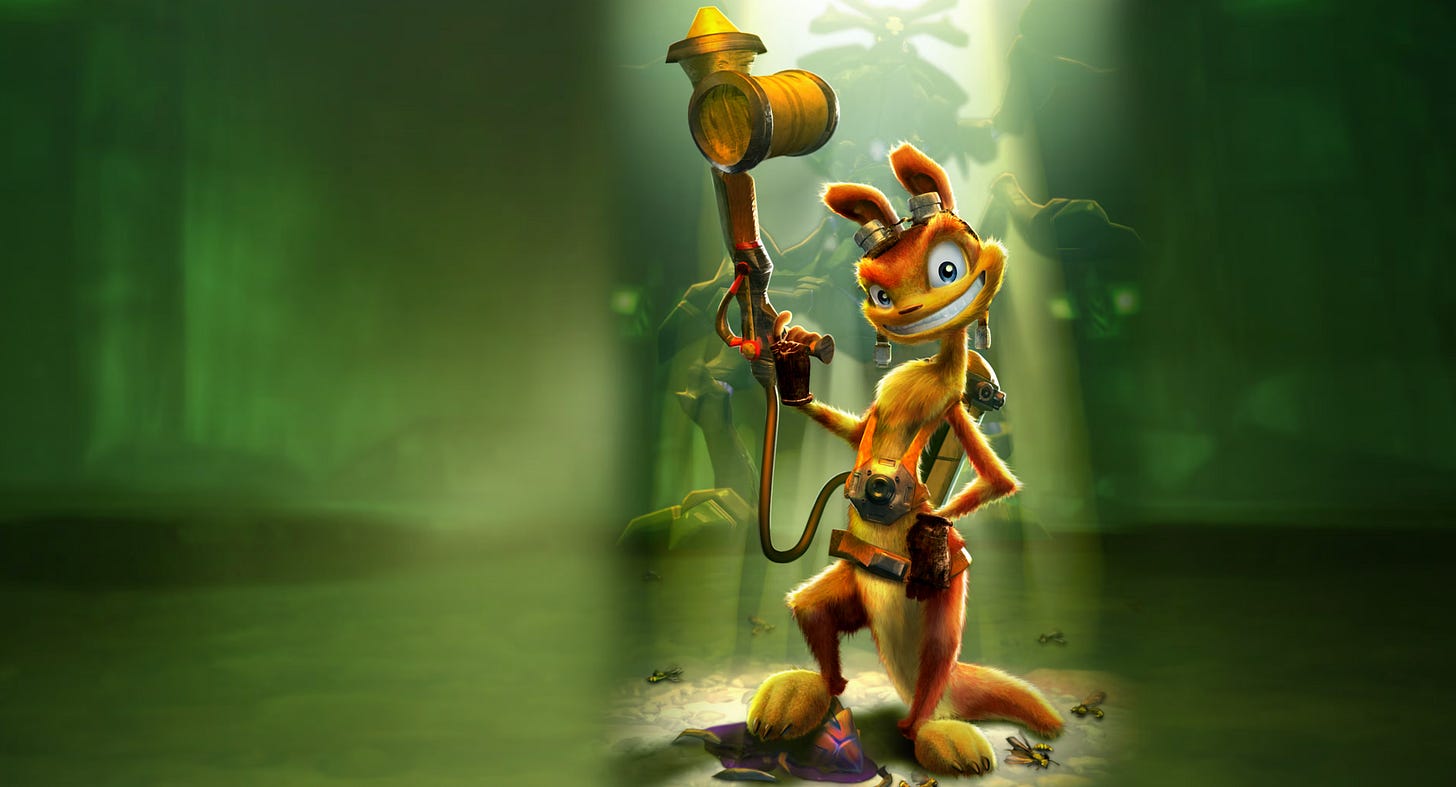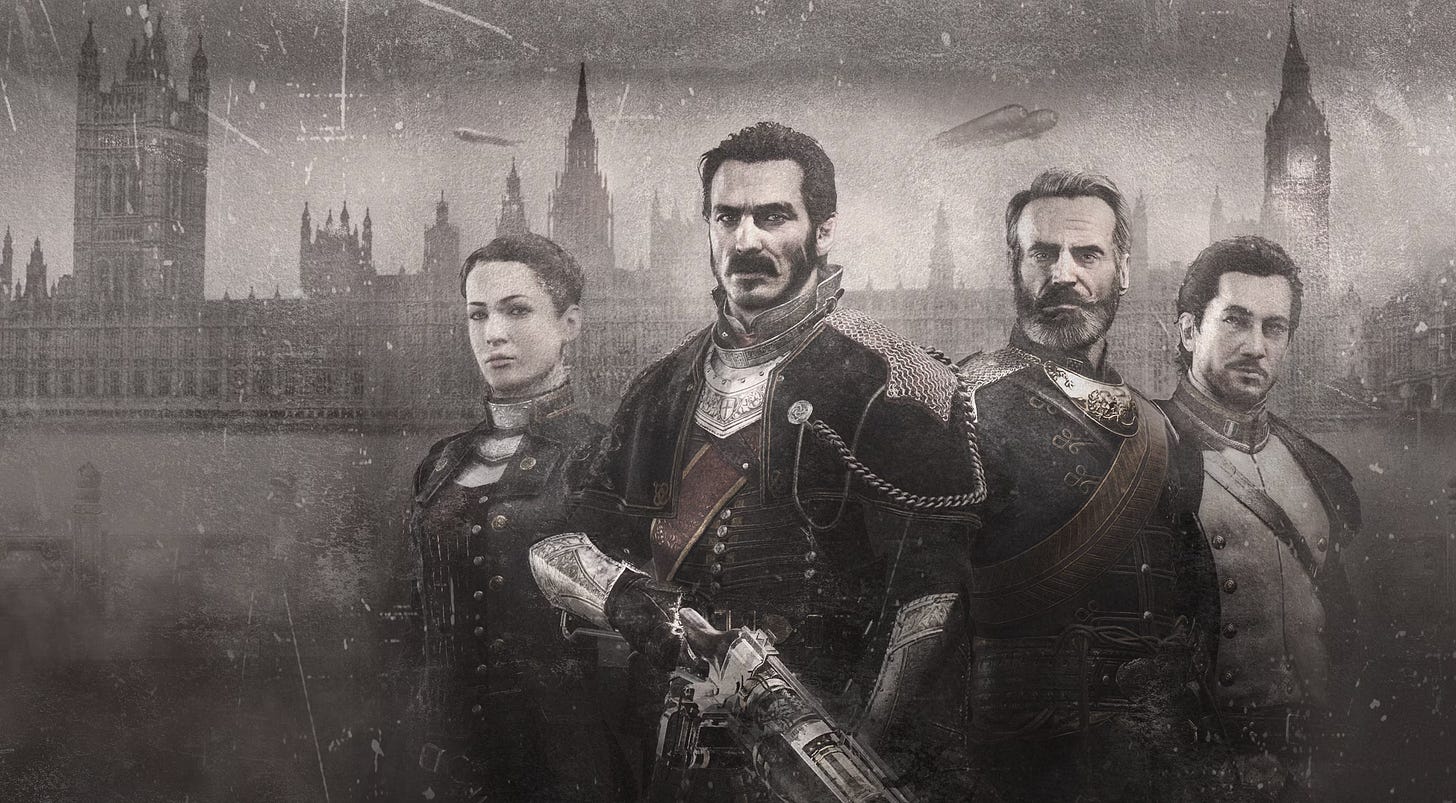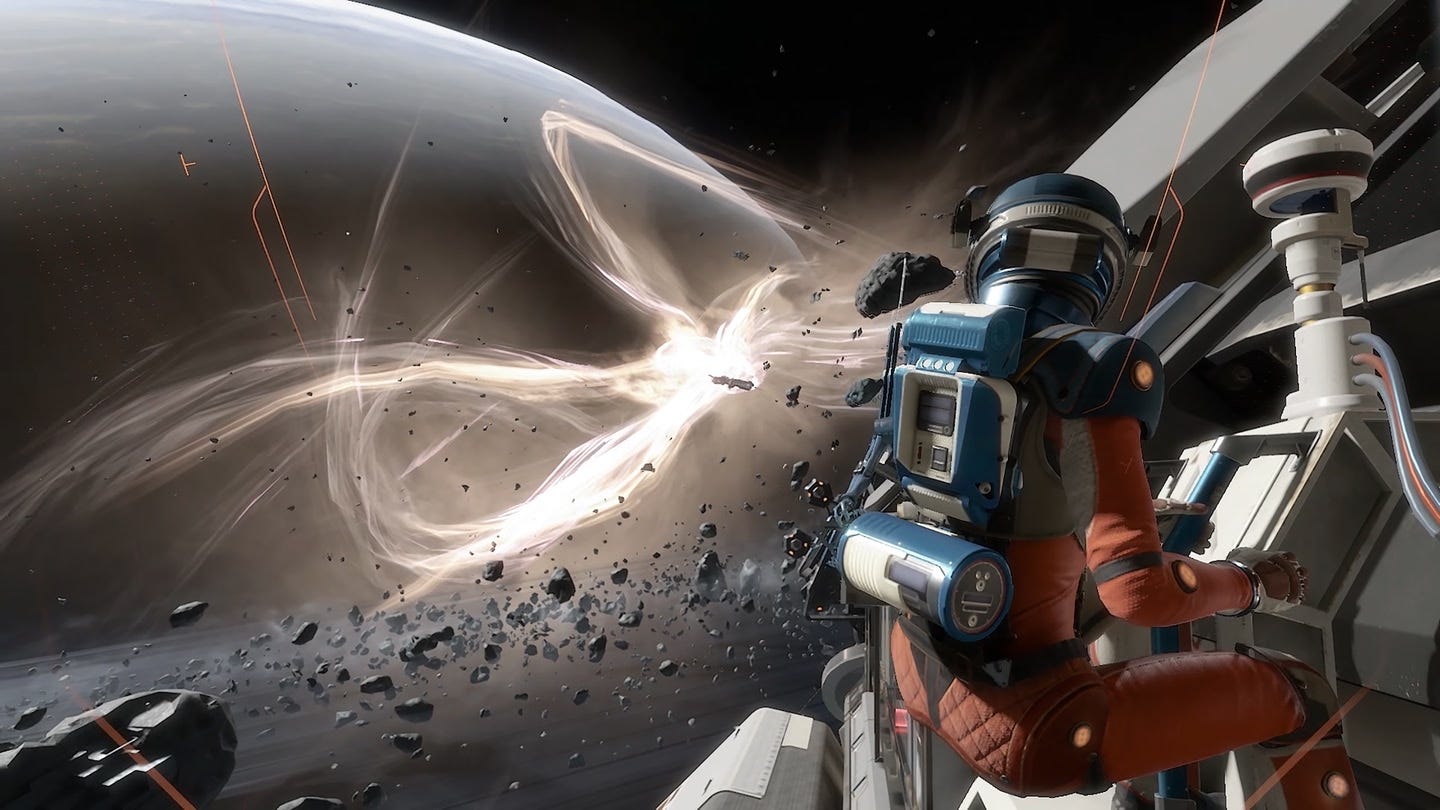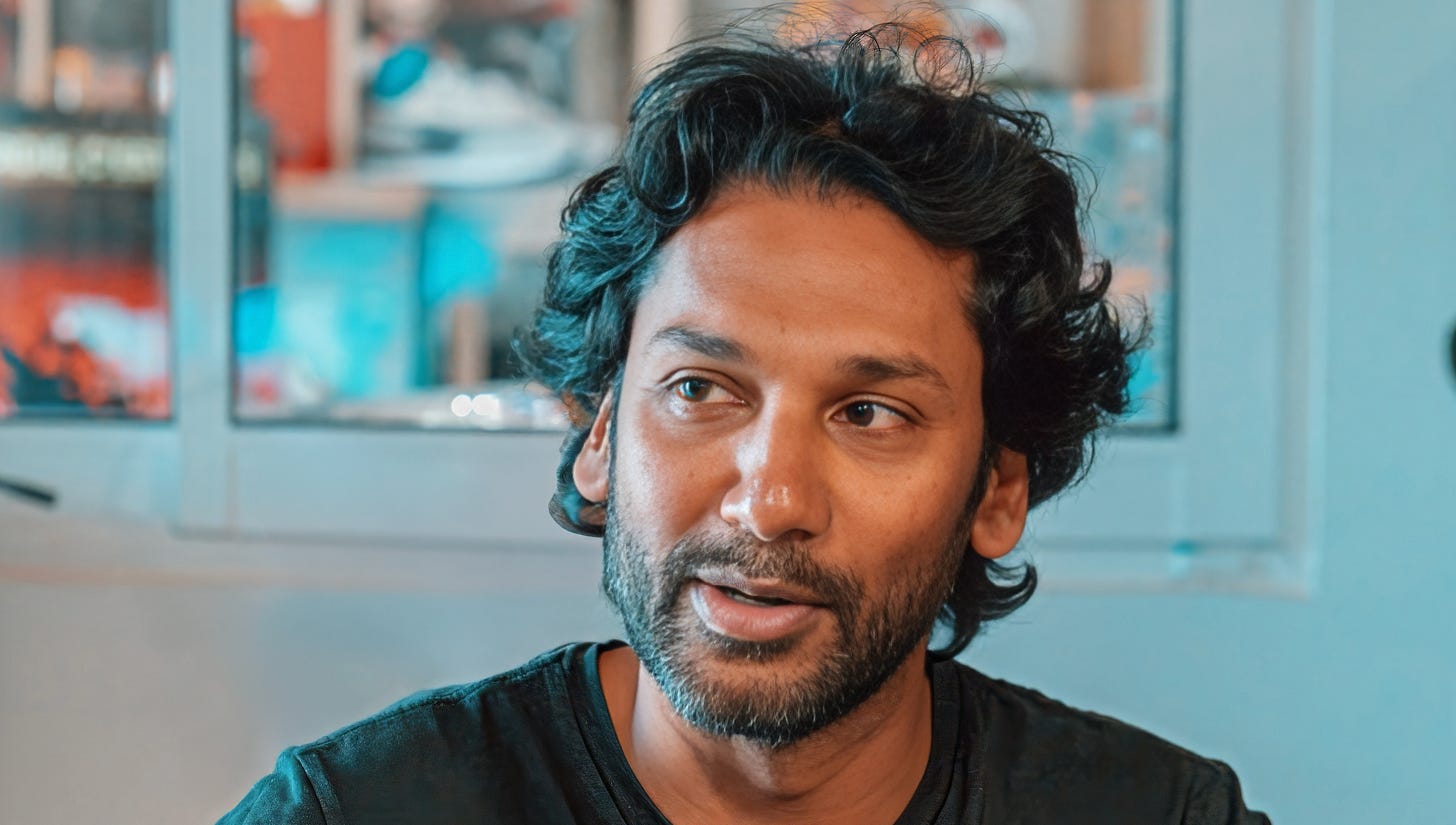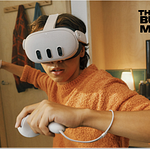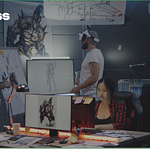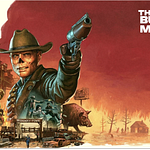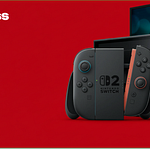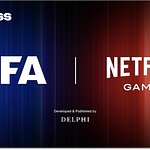Listen now on Apple, Spotify or YouTube
In This Edition
Atlantis co-founder Ru Weerasuriya on…
- Launching a new studio today
- Working with Sony at Ready at Dawn
- Where things went wrong with Meta
- The future of the industry
For those of us who remember the PlayStation Portable, Ready at Dawn was almost a household name.
2006’s Daxter, 2008’s God of War: Chains of Olympus and 2010’s God of War: Ghost of Sparta are three of the best games made for the PSP, just ask the internet.
Having delivered so handsomely for Sony’s first portable, Ready at Dawn was given the greenlight to produce a first-party original PS4 title called The Order: 1886. It was a high-profile release in 2015, but the reaction from critics and players was mixed, and that marked the end of Ready at Dawn’s partnership with Sony.
The developer made a pivot into VR after that, launching a number of well received games (including Lone Echo and Lone Echo 2) for Oculus/Meta. Meta acquired the studio in 2020, but last year made the decision to close it down.
Then, just a few weeks ago, Ready at Dawn’s studio head and co-founder Ru Weerasuriya showed up in my inbox. He is co-founder of a new games company called Atlantis Studio, based in the South of France.
I remember speaking to Weerasuriya over a decade ago, and he was always a candid, insightful and thoughtful speaker on all areas of the business. With his experience working with Sony, Meta and in VR (plus launching a new studio in a challenging market), I felt he might have interesting stories, insights and opinions that we all could learn from.
And I’m please to say, I was right.
Enjoy!
Sony commissioned Ready at Dawn during their first meeting
Ready at Dawn’s first game was the PSP title Daxter, a spin-off from Naughty Dog’s Jak and Daxter series. The PS2 games featured Jak as the main star, and Ready at Dawn’s wanted to put Daxter in the lead role on PSP.
“It was amazing to have [PlayStation behind us],” said Ru Weerasuriya. “The moment we started Ready at Dawn, a few months in, we met with [former PlayStation studios boss] Shuhei Yoshida. All we had was a little document, 20 pages, for what Daxter was going to become. The idea was it would be a spinoff featuring a sidekick on a sidekick platform. That's how we pitched it. It was the PlayStation 2 and the PSP and here you have Jax and you have Daxter.
“I still remember that meeting. I want to say it was an hour and a half. It was [Sony executives] Shu, Grady Hunt and Connie Booth. We pitched. We walk to the elevator. The elevator door is open. And as we walk in, Grady runs behind and says ‘okay, I think we're good.’ That was the industry back then. They just heard it and they were good to sign.
“Today, it’s not as easy to walk up to publishers. There are only a few that work that way. It takes a lot more to land a project. So, there's a little bit more fear of how that start is going to happen [for Atlantis].”
They really wanted to do a sequel to The Order: 1886
Ready at Dawn had become the highest rated developer on PSP and had set its sights on something more ambitions, a big AAA PS4 original IP.
That game was The Order: 1886, and despite impressing technically, it received mixed reviews. The game has been somewhat reappraised since, and there’s a clear sense of unfinished business with that game from Weerasuriya.
“There are things that, as a first game, we consciously decided not to do,” he told us. “For example, a lot of people dinged us for the fact that we didn't have multiplayer, which I understand. We did do a multiplayer in the first year of development, but we didn’t have the budget and time to finish it and, together with Sony, we decided to kill it in year two, and hopefully bring it back in a sequel. We had a functioning multiplayer. It was fun.
“The game length [The Order is under 10 hours]… that's something that a lot of people talked about at the time. We cut… I want to say 30% of the game a few months before it was released. We decided it had to come out in the time allotted. Were we to do it again, I would've probably tried to figure out a way to extend the development. It was only three and a half years to make the game from scratch.
“Sony, as I understand it, needed that game to come out. So, we made some sacrifices. But we really hoped to make a sequel after that. I had, in my head, the story for the second and third one. We had all of that prepped. But unfortunately, what happened, happened.”
It’s “a matter of time” for VR to take off
When a sequel to The Order: 1886 didn’t happen, Ready at Dawn pivoted to VR.
The firm had already looked into virtual reality with PSVR. The developer was shown the technology by Shuhei Yoshida at GDC. “He was so excited about it. It was contagious,” remembered Weerasuriya.
This led them into creating multiple VR projects, including the well-reviewed Lone Echo series for Meta. Now that Weerasuriya has moved on from Meta, I wanted to hear his views on the future of VR.
“I still believe in what it can achieve,” he said. “It's something that other mediums can’t provide. There's an immersion factor, there's an emotional factor, there's a connection factor that doesn’t exist in console or PC games. You play a character in every other game. You are the character in VR. And you do truly feel that.
“The industry has stuttered a little bit in the last years, and it's just a question of not having enough players in the industry. I think Meta truly believes in it. Meta understands what VR could be in the long term. It's just that in order for this industry to grow, it'll need a lot more players coming in. You need competition and innovation.”
The problem, Weerasuriya says, is that too many developers are responding to players, and not trying to push the boundaries of what the technology can do.
“The VR industry is not innovating as much as it's trying to deliver what the players want today. And what we need is to do something that nobody had done. That's what we were trying to achieve before we shut down. It was really not about serving the VR industry today, it was serving the VR industry in five to 10 years. And there are still ideas floating around. There are still things that haven't been done that I believe should be done in VR. For me, it's a matter of time, more than whether or not VR is going to survive.”
Meta and Ready at Dawn ‘were not aligned’ in the end
Ready at Dawn wasn’t looking to be acquired when Meta swooped for the developer in 2020. The two had been working together but, after a period of working with VR, Ready at Dawn was preparing to return to PlayStation.
“Originally, we didn't want to get acquired,” Weerasuriya told us. “We were quite happy being independent. Back in 2019, we were working on PS5. We had dev kits. That's what I communicated to Meta. I said: ‘look guys, I don't know where VR is going, because we don't know the long-term plans. But we have a hunger to do great things in VR. We also have hunger to do great things on the PS5’.
“Back in 2019, we were working on PS5. We had dev kits. That's what I communicated to Meta.”
“PS5 was our path. Lone Echo 2 was supposed to be our last VR game. And those discussions led to them coming back and talking about the future, about the plans they had, about the social platform that Mark [Zuckerberg] was trying to build, the future of what VR could be, which I was excited about.
“We seemed to align, and at the end of 2019, they approached us with this very strong vision about breaking the boundaries. That was the reason why we got acquired. They said: ‘Hey, we'll build a stronger partnership. You guys will get to do cool stuff and we'll follow this path of innovation that you set’. That's how we started. It was a really amazing relationship.”
Things started well, with the team instructed to innovate and think long-term with the projects and technology it was working on. But priorities changed.
“I believed in working on something that had a longer time range, like five years. It was technology and software and I was fighting to keep that going,” Weerasuriya said.
“And we felt as the last years with Meta went by... that wasn't quite aligned with where Meta was taking things. You could see that. And that's the reason why, unfortunately from that acquisition to four years later, we shut down the studio. Once you don't have that alignment, Ready at Dawn can't become something else. It has a DNA, it has a character, and you can't turn that studio into anything else other what it was built for.”
Atlantis Studio will remain small(ish)
After shutting down Ready at Dawn, Ru Weerasuriya was planning to take a break when he was contacted by a former colleague about a new company: Atlantis Studio.
Weerasuriya started as an investor and advisor, and is now more actively involved. It’s certainly a difficult time to launch a new game developer, so what made this worth the risk?
“What makes me confident is people,” he said on the Show. “I've never been confident that a certain IP is great because it's a known IP, or that the right partnership with a publisher is going to work out. We've seen traditionally really strong relationships with publishers and developers take a turn for the worst in the last few years.
“So, my confidence never come from this. It's come from people. It comes from ideas, And that's what happened with Atlantis. It was having six months of them just toying around with things that we just threw away. It was really allowing them to see whether or not they truly had it in them to find something that they loved. And when you see that team doing that, rather than being dictated something, everybody [ends up] owning a piece of the game.
“Seeing that happen made me confident that at least we had 60% of what you need to make a game successful.”
However, like a lot of new studios, there are no plans to make Atlantis a huge outfit.
“It's a sign of the times. We are a little more focused on the, let's say, AA-type game and budget. I don't think we want to grow beyond 25, 30 people. We want to make games that have impact but, at the same time, doesn't feel like we're overwhelmed. Take the time to ship them.
“[Sandfall Interactive] in Montpellier did an amazing job with Expedition 33, for example. They're only an hour away. They’re a similar vibe. They’re a small team. They did something amazing. A big-ish game, but not with the AAA budget.”
Ready at Dawn was in California, while Atlantis is based in France. Weerasuriya – who grew up in Switzerland – admits this was one of the appealing parts of backing the new business.
“California has notoriously been extremely expensive to make games,” he said. “Costs of making games have gone up and up over decades. The idea of doing something that actually required a smaller budget, in the beginning at least, was kind of exciting.
“But beyond that, there was something about being closer to where I come from in Europe. I was excited about the fact that it was a culture that I understood really well.”
I had to ask, considering the path not taken with Ready at Dawn on PS5, will Atlantis see the firm return to console gaming?
“A lot of people in the studio love Switch, but a lot play PlayStation. So, we’re not really driven by platform. I’ve told them, it’s pretty cool to be a first-party, or what people call second-party. To be driven by a partnership with a platform manufacturer… that would be really cool.”
“You can’t be driven by business model”
One part of the conversation that rang true to me was Weerasuriya’s view on business models. He says increasingly publishers and investors are telling studios that they need to make certain games to fit certain models if they want to be successful. He fundamentally disagrees.
“When we were independent 10 years ago, we were approached by publishers saying that if we want to survive, we have to do free-to-play, we have to do this, we have to do that. That wasn’t so much the case in the 2000s.
“All of those business impositions oftentimes go against the quality of what you’re trying to build. You can’t be driven by business model. You’re driven by ideas and amazing gameplay.
“The way the industry is today, I see a lot of games driven by business models where a publisher will come and say: ‘We'll do this, but only if we do season passes’. But does the gameplay lend itself to that? It's what happens when the industry gets bigger. Market caps get bigger and money is driving a lot of things.
“It’s great that we have different distribution models. Not everything needs to fit in that.”
That’s it for today’s The Game Business Newsletter and Show. We’ll be back Thursday as we dive into the latest US market data, and talk about Nintendo’s relaunch of Donkey Kong. Plus, all the biggest stories from the past week. We’ll see you then.



